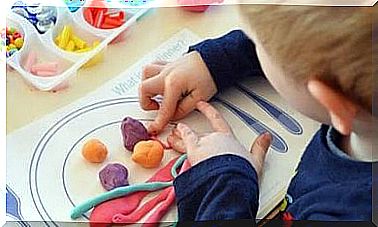Children Must Also Learn To Respect Their Parents

Respect is the first value that children must identify and apply, it is not enough that they respect everyone on the street but they must also learn to respect their parents.
We can see well-behaved children at school, who with adults and other children are an example of respect, but not with their parents. This situation is more common than you think and it happens because parents can become very permissive with their children.
Pleasing children in excess can result in them beginning to see their consentors as their slaves, which implies that when they want to impart discipline, they do not succeed.
Why doesn’t my son respect me?
There are several reasons why many children do not respect their parents, but they are all related to their own upbringing.
In a small percentage of cases, we find children who have psychological limitations, which make them disrespectful. However, the main cause of disobedience is poor parenting.

Among the main reasons that we can mention about children’s disrespect towards their parents are:
- Lack of commitment to parenting
- The excessive use of force
- Parents’ disrespect for children
- The absence of home
- Inconsistency in discipline
- Indulge them excessively
- Mishandling of communication
- Abstract rules or nonexistence of these
- Delegate education to other people
There are many extra and intra-family factors that can directly influence children to become disobedient, but the most common is that it develops over time without our noticing; that is, it does not appear from one moment to the next.
Although sometimes it is normal that there is a certain rebellion and independence in our children, we must be aware that above all things they must respect their parents.
How Children Can Learn To Respect Their Parents
If we have not yet reflected on the fact that there must be obedience on the part of children and on the contrary we take it with apathy or relaxation, it is time to understand that they will always be our children, that we are the most important person in their life and those responsible for being good people.
In this sense, if our children are of those who do not respect anyone, we may be raising people who are harmful to society. If a child begins by not obeying his parents, he is likely to end up not respecting the teachers and then even the authorities.

For this reason it is decisive that from now on we get to work on the discipline of our children with a heavy hand but with enough tact. To address this, let’s reflect on the following keys:
- Do not confuse respect with fear or submission. Knowing how to respect does not imply belittling and overriding the rights of others.
- Be assertive in correcting faults. This implies issuing warnings at the appropriate time and adapting them to the situation.
- Express clearly that we are his parents and he owes us respect, no matter how many times he is told and for life.
- Be consistent on the topic. So that the child knows that this situation is permanent, they cannot be allowed to jump the line from time to time.
- Acknowledge mistakes. This key is destined to consolidate mutual respect, because we know that we do not have the whole truth in our hands and sometimes we can believe that we do. Recognizing when we are wrong and making it known is the greatest demonstration of respect, it is also conducive to explaining to the child that respect goes above all else.
- Adequate communication. Speaking and listening properly is an essential tool in coexistence, that is why the way we communicate with children should be moderated. Avoid ambiguous or unknown words, regulate the tone of voice, do not resort to insults or vulgar words; it can help to better understand the notion of respect.
- Establishing norms of family coexistence such as greeting, asking for permission, being grateful, contributing with the housework and preserving the family assets, are rules that allow us to distinguish that the rights are equal for everyone, which leads us to understand that being Respectful forces them to be respectful to us as well.









